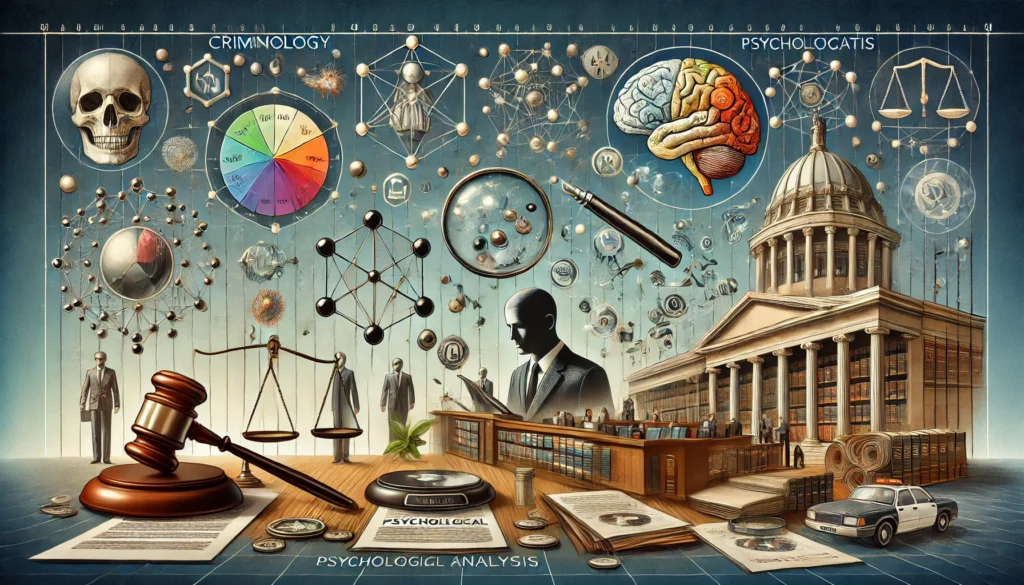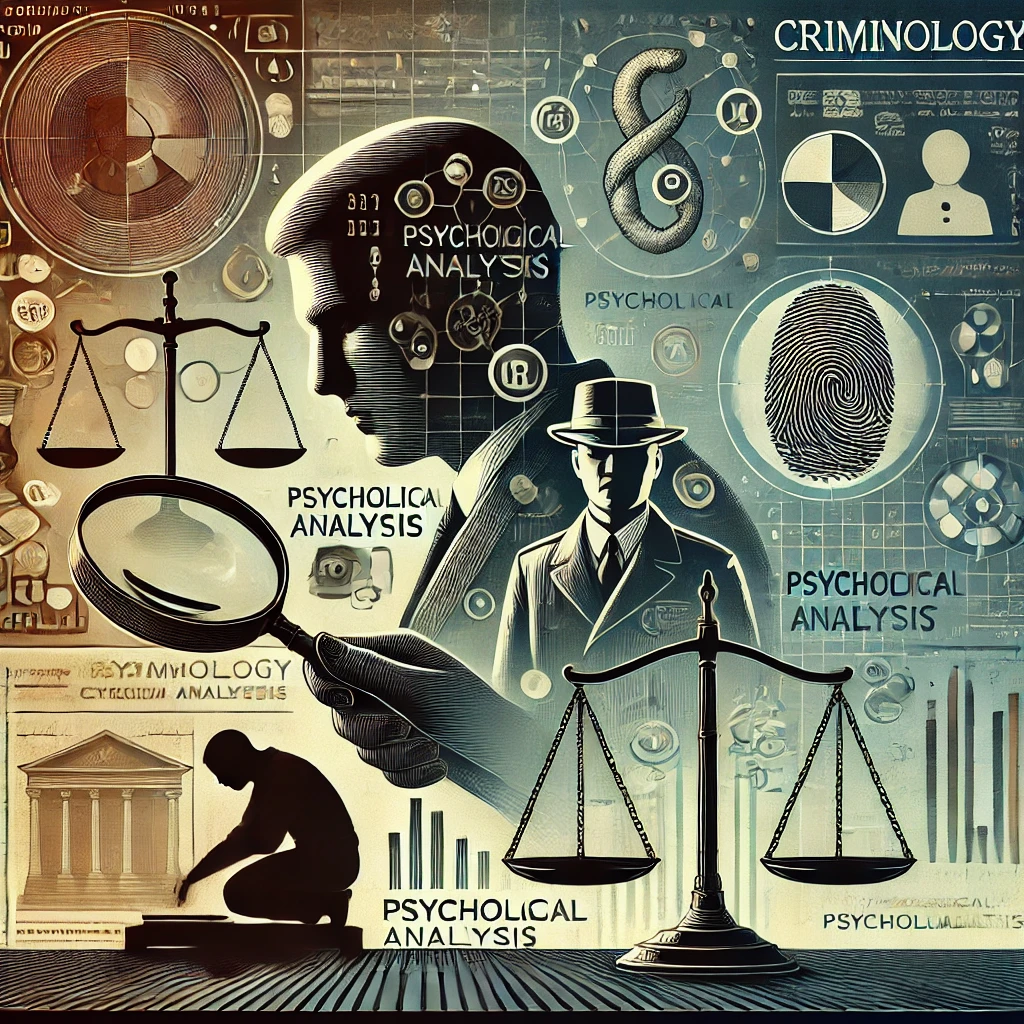Criminology is a dynamic field that bridges the gap between understanding criminal behavior and shaping effective legal frameworks. Its intersection with criminal law provides insights that go beyond statutes and legal theories, delving into the root causes of crime and the methods to address them effectively.
In this article, we explore the role of criminology and its auxiliary sciences in criminal law, showcasing how these disciplines contribute to a more holistic understanding of crime and justice. By examining their interconnections, we gain valuable perspectives on how criminal law can evolve in response to societal changes.
The Foundation of Criminology
What is Criminology?
Criminology is the scientific study of crime, its causes, and its consequences. It encompasses various dimensions, such as the psychological, sociological, and environmental factors that influence criminal behavior. The discipline is rooted in understanding human behavior and societal structures to address crime prevention and rehabilitation effectively.
Criminology’s Core Objectives
- Understanding Criminal Behavior: Investigating why individuals commit crimes.
- Crime Prevention: Identifying strategies to reduce crime rates.
- Policy Development: Offering evidence-based recommendations for legal reforms.
- Rehabilitation: Exploring methods to reintegrate offenders into society.
Criminology and Criminal Law
How Criminology Supports Criminal Law
Criminology and criminal law are intertwined. Criminal law sets the legal framework for defining and punishing crimes, while criminology provides the scientific foundation to understand the factors leading to criminal acts. This synergy ensures that laws are not only punitive but also preventive and rehabilitative.
Examples of Integration
- Defining Crimes: Criminological studies have influenced how specific actions are classified as crimes based on societal harm.
- Shaping Sentencing Policies: Research in criminology helps tailor sentences to the severity of crimes and the likelihood of rehabilitation.
- Addressing Recidivism: Criminological insights guide reforms aimed at reducing repeat offenses.
The Role of Auxiliary Sciences in Criminology
Psychology and Criminal Behavior
Psychology plays a pivotal role in understanding the mental processes that drive criminal behavior. For instance, the study of personality disorders and impulse control issues provides valuable insights for profiling offenders and developing tailored interventions.
Sociology and Crime
Sociology examines the societal structures and cultural norms that influence crime rates. Factors such as poverty, education, and community dynamics are studied to address systemic causes of criminal behavior.
Anthropology and Cultural Influences
Anthropology sheds light on how cultural practices and traditions shape societal perceptions of crime and justice. This understanding is crucial in multicultural societies where laws must respect diverse values.

Enhancing Criminal Law Through Auxiliary Sciences
Evidence-Based Policy Making
Auxiliary sciences provide the empirical data needed for crafting policies that are both effective and equitable. For example, sociological research on urban crime hotspots can guide the allocation of resources for community policing.
Forensic Sciences
Forensic science, an auxiliary discipline closely tied to criminology, has revolutionized criminal law. Advances in DNA analysis, fingerprinting, and digital forensics have improved the accuracy of criminal investigations and court proceedings.
Rehabilitation Programs
Insights from psychology and sociology inform rehabilitation programs that address the root causes of criminal behavior, offering offenders a chance to reintegrate successfully into society.
Practical Applications of Criminology and Auxiliary Sciences
Case Studies
- The Role of Forensic Evidence: High-profile cases have demonstrated how forensic science can exonerate the innocent and convict the guilty.
- Community Policing Models: Sociological studies have led to successful implementation of community policing strategies in reducing crime rates.
Global Examples
- In Scandinavian countries, criminology has influenced progressive sentencing policies focused on rehabilitation rather than punishment.
- The use of psychological profiling in the U.S. has become a standard practice for understanding and capturing serial offenders.
Conclusion
Criminology and its auxiliary sciences are indispensable in the realm of criminal law. Together, they create a robust framework for understanding and addressing crime in a multifaceted manner. By integrating insights from psychology, sociology, anthropology, and forensic science, criminal law can evolve to meet the challenges of modern societies.

